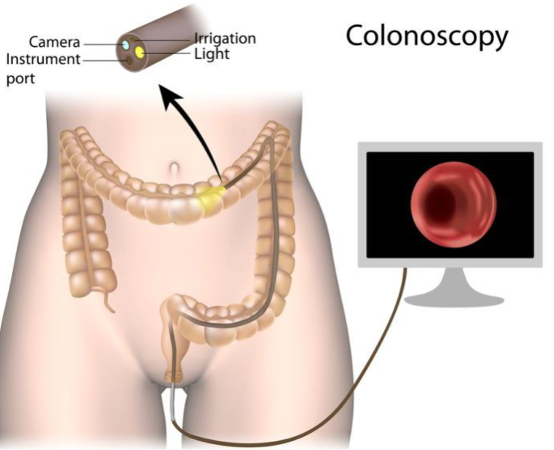Seniors With Few Years Left Often Advised to Get Colonoscopy
March 23, 2023
Source: drugdu
 539
539

Most of the time, when a polyp is found during an older adult’s colonoscopy, it is unlikely that a concerning polyp or colon cancer will be found during a future surveillance scan. Yet most patients are advised to repeat the colonoscopy even if they aren’t expected to live very long, a new study has found.
“Given the lack of clear guidance about when to stop colonoscopy in older patients, I am not surprised that physicians recommend surveillance even in patients with low life expectancy,” said Ziad Gellad, MD, MPH, with Duke University Medical Center in Durham, NC, who was not involved in the research.
“These are nuanced decisions that require shared decision making. It’s not easy to tell patients that they are too old to get preventive care, especially patients in whom your only interaction is the procedure itself,” Gellad said.
Current guidelines recommend doctors and patients make decisions about repeat colonoscopy in older adults with prior polyps, weighing the potential benefits (identifying and removing meaningful polyps to prevent cancer) against the burdens and potential harms, such as bleeding.
While most colon polyps are not harmful, a subset of polyps, if allowed to grow, have the potential to develop into cancer, a transformation that can take 10 to 15 years. This long timeline highlights the importance of considering life expectancy in deciding which patients should have a repeat colonoscopy.
The new study involved nearly 10,000 adults age 65 and older undergoing surveillance colonoscopy due to a prior polyp. Fewer than 1 in 10 of these individuals were found to have advanced polyps or colorectal cancer during a repeat colonoscopy.
Yet the vast majority (87%) of individuals whose doctor gave a recommendation to stop or continue colonoscopy were advised to return for another procedure at some point – even when they had no significant colonoscopy findings or limited life expectancy, including less than 5 years.
In some cases, the recommended time to repeat colonoscopy was greater than the individual’s life expectancy.
Complications during colonoscopies happen to about 26 in every 1,000 people -- nearly 10 times greater than the potential benefits as seen in their study in terms of identifying cancer.
These findings “may help refine decision-making” about the potential benefits and harms of pursuing or stopping surveillance colonoscopy in older adults with a history of polyps, write the investigators, led by Audrey Calderwood, MD, with Dartmouth Hitchcock Medical Center in Lebanon, NH.
Based on their findings, they think older adults expected to live fewer than 5 more years should skip surveillance colonoscopy. The same goes for individuals whose life expectancy is between 5 and less than 10 years and they only have “low risk” polyps.
For the healthy senior with a life expectancy of 10 or more years and recent “advanced” polyps, they suggest the doctor provide a recommendation for future surveillance colonoscopy with a caveat that the ultimate decision is dependent on health and priorities at the time the colonoscopy is due.
webmd.com/colorectal-cancer/news/20230321/seniors-with-few-years-left-often-advised-to-get-colonoscopy
By editorRead more on
- China Sino Biopharmaceutical Signs Exclusive Licensing Agreement with Sanofi for Rofalcitinib March 4, 2026
- Gan & Lee Pharmaceuticals’ new PROTAC drug GLR2037 tablets have been approved for clinical trials to enter the field of prostate cancer treatment March 3, 2026
- AideaPharmaceuticals plans to raise no more than 1.277 billion yuan through a private placement to focus on the global clinical development of innovative HIV drugs March 3, 2026
- Giant Exits! Its Star Business Acquired March 3, 2026
- Focusing on cardiovascular and cerebrovascular diseases! OpenMediLead Medical Intelligence Dual Engines Launch Internal Testing, Connecting Drug Development and Clinical Diagnosis in a Closed Loop March 3, 2026
your submission has already been received.
OK
Subscribe
Please enter a valid Email address!
Submit
The most relevant industry news & insight will be sent to you every two weeks.



